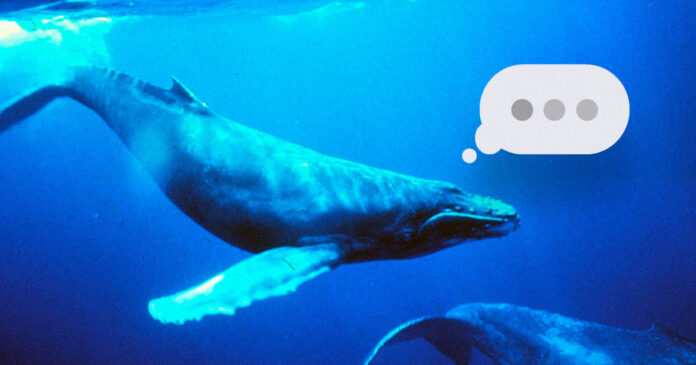A team of interdisciplinary scientists have launched a Project CETI with the goal of decoding and communicating with sperm whales. CETI- Cetacean Translation Initiative, is a non-profit organisation and 2020 TED Audacious Project applying advanced machine learning and gentle robotics. It will be used to decipher the communication of ‘the sperm whale’. Whales speak in clicks, which they make in rhythmic series called “Codas”. Canadian biologist, Shane Gero was the one who observed the codas and recorded the sounds.
Project CETI
Project CETI is the first step to understand the ecosystem around humans and to understand other species’ existence. The project is headed by major organisations, including the National Geographic Society and the Computer Science and AI Laboratory at the Massachusetts Institute of Technology. This is for the first time that the recent breakthroughs in AI and unsupervised machine translation, allowed researchers to interpret and translate between two unknown human languages without a parallel structure. To provide the first-ever blueprint of another animal’s language, the project will be built on these discoveries. Project CETI, over the next 5 years will seek to understand sperm whales on a level never achieved before. David Gruber- The Presidential Professor of Biology and Environmental Science at CUNY (City University of New York) is the lead for CETI Project. The Project will launch a public portal and through its partners will engage a global community in the deep wonder of attempt of meaningful dialogue with a non-human species.
Goals of Project CETI
Its first goal is to gather 4 billion sperm whale codas. The researchers will need to put all the collected codas into context, else it will meaningless. Once the goal will be accomplished, it will give more possible outcomes of developing language model that can communicate “whale”. This will permanently alter the way humans perceive and interact with nature. “If we discover that there is an entire civilization basically under our nose — maybe it will result in some shift in the way that we treat our environment, and maybe it will result in more respect for the living world.” Michael Bronstein, the lead of machine learning for Project CETI.





